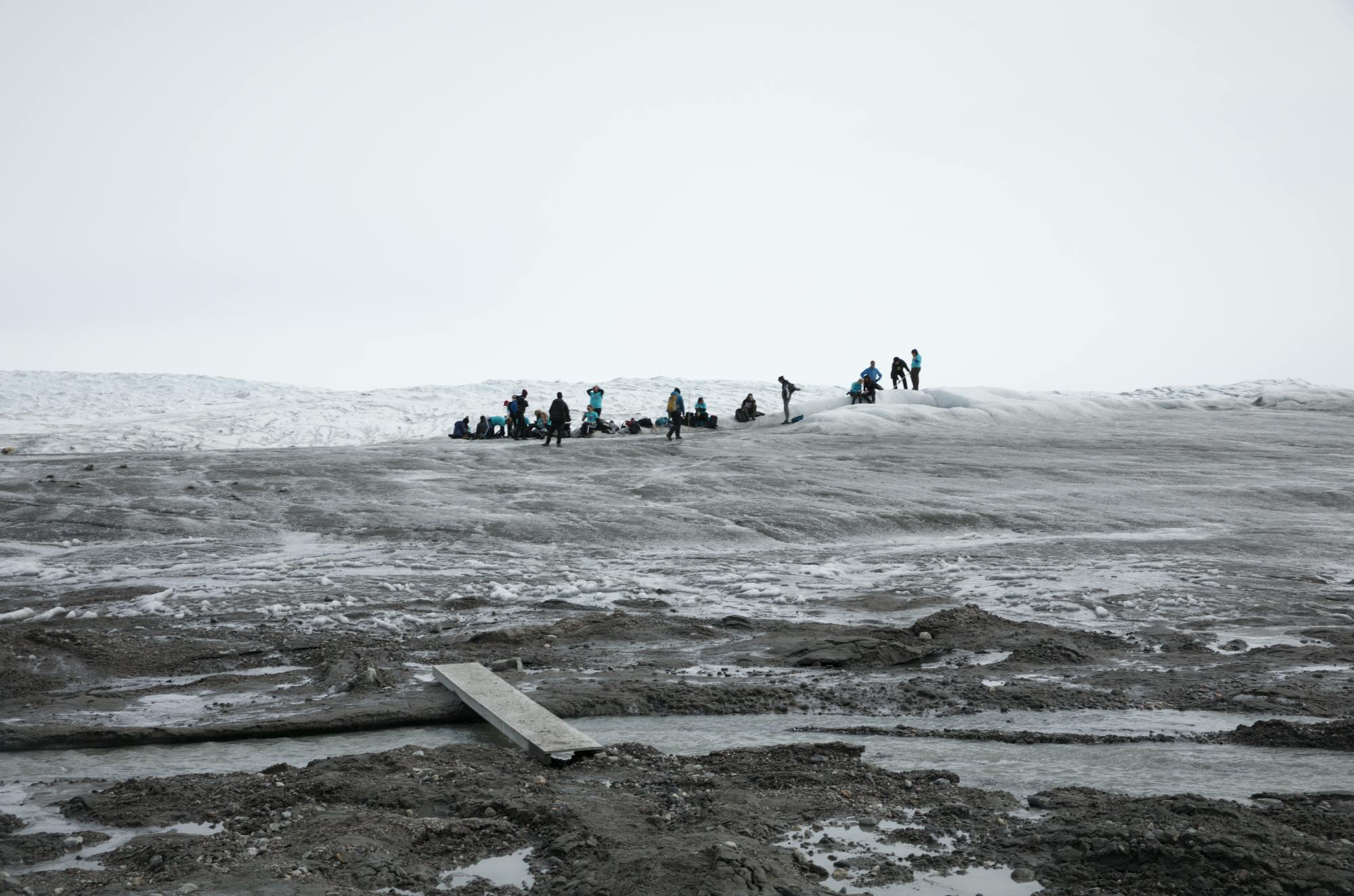Dartmouth’s Institute of Arctic Studies within the Dickey Center for International Understanding received a $1.3 million grant from the National Science Foundation, an endeavor led by environmental studies research professor Lauren Culler and Institute of Arctic Studies director Melody Burkins. The Institute of Arctic Studies has received three grants thus far from the NSF, with the latest stipend projected to strengthen the hybridization of experiential learning and cross-cultural collaboration between Greenland, Denmark and the United States.
Culler leads the Joint Science Education Project, which started in 2007 separately from the College. According to Culler, the program was originally envisioned by a government forum to induce cooperation between the U.S., Denmark and Greenland. Eventually, the NSF, “one of the lead agencies in the federal government for polar research,” was brought in to lead the program, Culler said. In 2014, Dartmouth first solidified its involvement with the NSF when Culler and environmental studies professor Ross Virginia crafted a proposal asking the NSF to allow the College to have a leadership role in JSEP.
Culler explained that this new grant will help further the collaboration between the Intitute and JSEP, adding that JSEP overlaps with the Institute’s core values of experiential education and developing close relations with Arctic and Indigenous partners.
“JSEP has been one of the most foundational programs in the Institute for Arctic Studies in the past five to seven years,” said Culler.
Biology professor Matthew Ayres, who has been connected with the Institute of Arctic Studies for over 10 years, said that his involvement with the Institute has been a “very important and rewarding part of his life.”
Ayres said that he believes that the latest grant continues the Institute’s work leading science, engineering and governance for the polar regions. Ayres said that the JSEP program gives participating students and faculty the opportunity to receive training in Greenland, which Ayres describes as the “center of rapid environmental change that affects the whole world.”
“The most powerful feature of the current grant is that our team is literally the only people in the world that could do this,” Ayres said.
While JSEP is aimed at providing experiential learning opportunities for high school students, since Dartmouth contributes a curriculum to the already existing JSEP framework, it also gives the Institute’s graduate students a chance to build their teaching, mentoring and science communication skills, Culler said.
Culler emphasized Dartmouth’s dedication to Arctic research.
“Dartmouth has strengths in Antarctic science because we have faculty all across campus that are involved in really amazing research in the polar regions,” Culler said.
Alana Macken ’23, a 2018 JSEP student, said that the program was a motivating factor in her decision to attend Dartmouth. Originally from Santa Rosa, California, Macken said she has experienced deadly wildfires and that JSEP gave her a community that dealt with similar feelings of devastation at home in different ways, such as permafrost melt.
“The program has had a huge impact on my life, my interests and having that type of mentorship was not something I had access to before the program,” Macken said. “[JSEP] brought back to life for me the part of science which is, at its core, trying to answer questions.”
Typically, the program has involved five U.S. high school students, four to five Dartmouth graduate students and Greenlandic and Danish students and educators flying to a Greenland ice cap and bringing back ice cores, Ayres said. However, during the pandemic when travel was restricted, the Institute discovered innovative ways of bringing the Arctic to children’s homes.
The virtual program — which was expanded during the COVID-19 pandemic to allow more students to participate — involved cultivating plant biodiversity and making mini glaciers to investigate polar concepts, Culler said.
“We’re going to return to bringing the five high school students a life-changing experience to Greenland and continue running a remote version that will reach 25-30 additional students,” Ayres said.
Both Burkins and Culler view Dartmouth’s continued work with JSEP as a chance to promote student engagement with science and pursue cross-cultural connections in polar regions under a hybridized format, one that developed during the pandemic but still persists after. Culler also said JSEP is focusing on accessibility by not only continuing to make the program free, but also by offering students a stipend for additional expenses, which they haven’t been able to do in the past.
“It’s about international community building at the top of the world in the Arctic, where cooperation has never been more important than it is now in the Anthropocene,” Ayres said.




